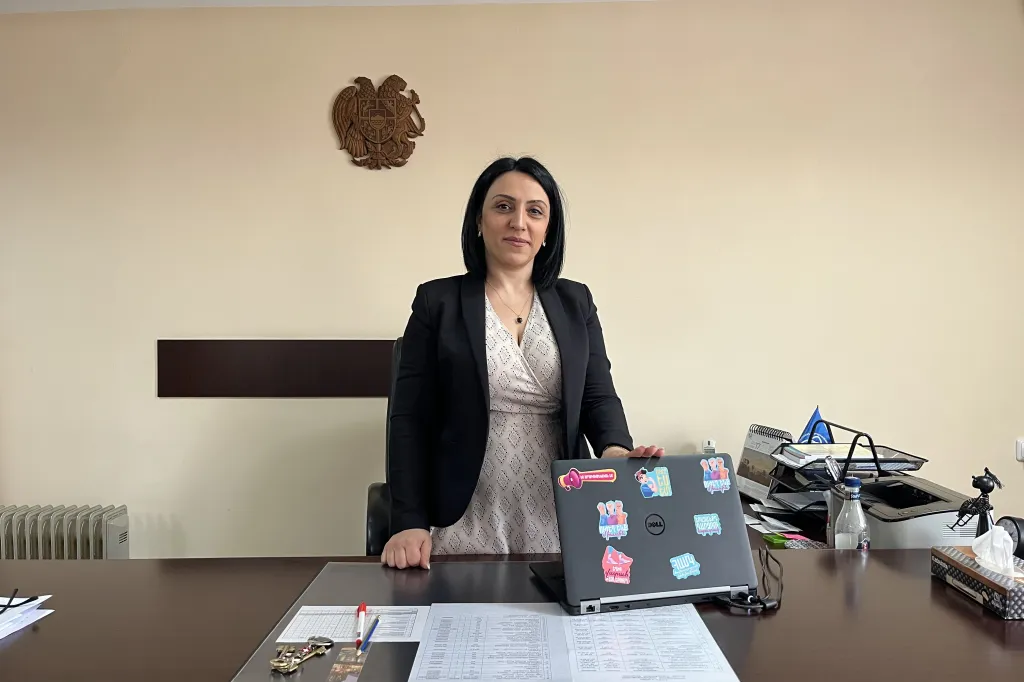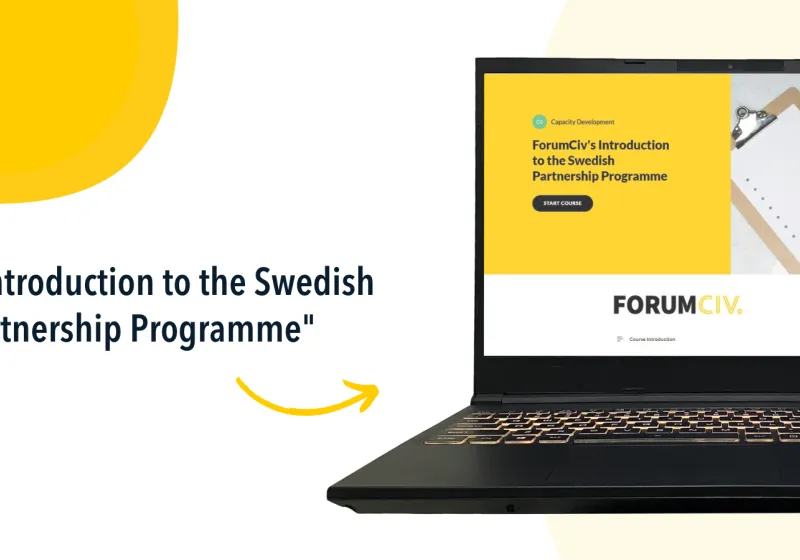Knowing your rights: an interview with Armenian trade union president Elen Manaseryan

I meet Elen Manaseryan at her office at the Confederation of Trade Unions of Armenia (CTUA), situated slightly off Republic Square in Yerevan’s city center. Manaseryan, who became the first female President of the CTUA at the end of last year, exudes both strength and determination as we shake hands. As we sit down by her desk, I ask her to tell me more about herself and her work as a defender the human and worker’s rights in Armenia for two decades.
Manaseryan tells me that she first became acquainted with trade unions back in 2003, when she worked as a lawyer in a factory. Realising the importance of trade unions as a tool for defending and strengthening rights, she decided to get actively involved in the union’s work. Twenty years later, she can look back on a career focused on the protection and enhancement of employees’ rights in Armenia.
Rights education
Manaseryan’s dedication to engaging people from all over the country to participate in trade unions and fight for their rights is present throughout our conversation. Throughout her career she has travelled all over the country to give legal advice and educate people about their rights. Then, at the end of 2019, just months before the Covid-19 pandemic hit, Manaseryan was appointed head of the Education Center at CTUA.
Subsequent lockdowns and restrictions made life and work very difficult for workers all around the world. Adapting to the new reality, Manaseryan tells me that CTUA decided to use this moment to focus on creating and distributing information material to educate people about labour rights violations amid the pandemic.
Despite limited resources, they made three short educational videos and promoted these online. Since they had no funds to support the project, they did everything – from script to editing – by themselves. She is smiling while she tells me that even the voice-over of the cartoons featured in the videos were made by herself, her brother, and a colleague.
After having completed two videos, they were granted some support by the International Labour Organization (ILO). This allowed them to expand the programme and continue to educate people even during the challenging times brought about by the pandemic.
Battling ignorance
I ask Manaseryan to share her perspectives on some of the main challenges faced by trade unions in Armenia today. She tells me that while the CTUA has a good relationship with both employers and the Ministry of Labor and Social Rights, one of the main difficulties that they face is trying to establish a functioning platform for social dialogue with the government to enhance consultations and cooperation between the government, employers and unions.
Another challenge is addressing the lack of awareness among the public regarding the role and purpose of trade unions. Due to Soviet-era stereotypes, Manaseryan recounts how many people perceive unions as mere social funds that provide financial support or gifts, rather than recognizing their primary function, which is to protect labor rights and represent employees.
Workers’ unawareness of their rights means that they that are more susceptible to accepting and enduring unfavourable working conditions. It is a common issue that employees sign their contract without thoroughly reading and understanding the content, which more than once has resulted in gross violations of their rights. In fact, Manaseryan tells me that CTUA recently went to court over such a case – and won. This case concerned a supermarket employee who, according to their contract, only was entitled to five days of vacation per year, even though the Armenian labour code guarantees a minimum of 20 days of vacation per year.
EU support for trade unions
Enhancing cooperation with the government and educating more people about their rights and the benefits of trade unions represents significant challenges that CTUA is constantly working on changing. Another challenge, however, over which they have limited influence, is the impact of the conflict with Azerbaijan. While Manaseryan tells me that life has to go on, promoting labour rights among people whose primary concern is survival has proved to be a real challenge. Despite this, CTUA is working to promote worker’s rights all over Armenia.
Finally, I ask Manaseryan what she thinks about the role that the EU could play vis-a-vis trade unions in the Eastern Partnership region. Her reply is straightforward. The EU should direct some of the funds allocated for NGOs to labour unions instead. She argues that by directly supporting trade unions, the EU could achieve more impactful and sustainable results. Because unlike an NGO, which applies for money to implement labour rights focused projects during a limited period of time, trade unions are dedicated to advocating for labour rights on a daily basis. They continue their work regardless of the availability of grants, ensuring a continuous focus on labor issues and protecting employees’ rights.
Written by Amanda Sonesson, project coordinator for ForumCiv's ongoing project Sweden for Eastern Partnership.
This article is part of a series of articles and events organized within the Sweden for Eastern Partnership project. Sweden for Eastern Partnership is run by ForumCiv and financed by the Swedish Ministry for Foreign Affairs.
Other recent articles

7 recommendations for EU policymakers after the development in Georgia
After the Law on Transparency of Foreign Influence in Georgia, here are seven concrete actions that EU Decision Makers need to take.

Kenya’s Chief Justice Hon. Martha Koome launches ForumCiv’s report on public policy gaps
“The findings from this research we are launching today stresses the importance of continuous tailormade trainings for all stakeholders involved in policy development from county officials to members...

New e-learning course presents the Swedish Partnership Programme
This course is especially relevant to newer organizations and/or those who have experienced challenges in various application processes. It presents the Swedish Partnership Programme.